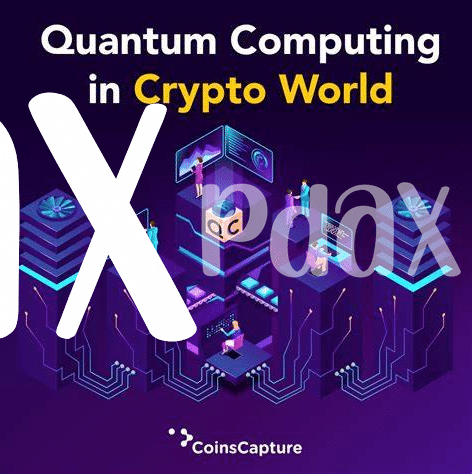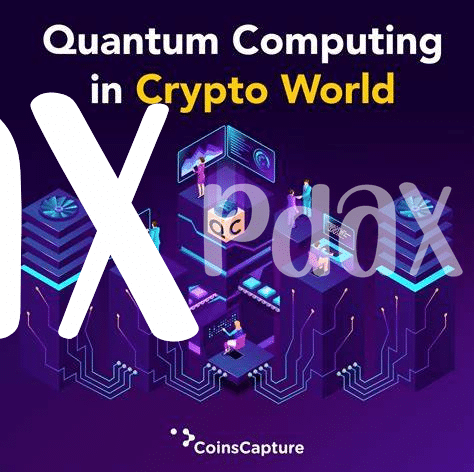What’s the Buzz? Exploring Quantum Computing 🚀

Imagine a supercharged computer, so powerful it can process billions of calculations at once, all while making your everyday gadgets look like toys. That’s what’s surrounding the excitement of quantum computing. This isn’t just any upgrade; it’s like comparing a lightning bolt to a light bulb. At its heart, quantum computing uses the principles of quantum mechanics, a bit like magic from the world of atoms and particles, to solve problems at speeds unimaginable with today’s computers. While classic computers use bits (you can think of them as tiny switches that can be either off or on, 0 or 1), quantum computers use qubits. These qubits can be both 0 and 1 at the same time, thanks to a bewitching property called superposition. Plus, they can communicate through a phenomenon known as entanglement (think of it as a spooky kind of internet for qubits), making them incredibly fast and efficient. This wizardry is starting to get real-world attention, promising breakthroughs in medicine, materials, and more. However, it’s not just about making something faster or better; it’s about opening doors to discoveries we can’t even imagine yet.
| Feature | Classic Computers | Quantum Computers |
|---|---|---|
| Basic Unit | Bit (0 or 1) | Qubit (0 and 1 simultaneously) |
| Key Property | Binary Processing | Superposition & Entanglement |
| Potential | Limited by binary processing | Vast, with breakthrough possibilities |
Bitcoin 101: a Digital Gold Rush 🪙
Imagine stepping back into the days of the Gold Rush, but instead of shovels and pans, people are equipped with computers and the internet. This is the essence of Bitcoin, a digital treasure that has sparked a modern-day rush, attracting millions worldwide. Like the Gold Rush, it’s fueled by the promise of wealth, but here, miners dig through complex mathematical puzzles instead of the earth. Every solved puzzle not only validates transactions but also rewards the solver with new Bitcoins, making the digital quest as enticing as the hunt for gold nuggets once was.
In this digital age, Bitcoin has become synonymous with the term “cryptocurrency,” leading a financial revolution from the front. Its allure stems not just from its potential for hefty returns but also from its promise of decentralized finance, free from the control of any government or institution. As it weaves its way into the fabric of our financial systems, it challenges traditional models, urging people to rethink money’s very nature. To further explore the incredible journey of Bitcoin, including its challenges and prospects, don’t miss this insightful article at https://wikicrypto.news/deciphering-the-deep-web-retrieving-stolen-bitcoin-in-2024, offering a peek into the future of cryptocurrency.
Quantum Computing Vs. Bitcoin: the Basics 🤼

Imagine a super-smart computer that can solve problems faster than you can blink! That’s what quantum computing is all about. It uses the magical rules of quantum mechanics to perform tasks super quickly, making it a game-changer in the world of tech. On the other side, we have Bitcoin, a digital treasure that has changed how we think about money. It’s like having a gold mine in your computer, where miners solve puzzles to get new coins.
Now, when these two giants meet, things get interesting. Quantum computing could potentially crack the codes that keep Bitcoin secure, which is a bit like having a master key to every lock. But, don’t worry too much yet! The Bitcoin community is always on their toes, looking for ways to strengthen their defenses. It’s like a never-ending chess game, where both players are constantly evolving their strategies to stay one step ahead.
Potential Impacts: Quantum Computing on Bitcoin Security 🔐

Imagine a world where our current superheroes of the digital age, like Bitcoin, might face an unprecedented challenge. This isn’t a scene from a sci-fi movie, but a potential reality with the rise of quantum computing. Quantum computers, with their ability to process complex problems much faster than current computers, could one day crack codes that keep our digital treasures, like Bitcoin, safe. This could mean that the virtual vaults securing Bitcoin might not be as impregnable as we once believed.
However, it’s not all doom and gloom. The crypto community is well aware of this possible future and is actively looking for ways to counteract these quantum threats. Innovations are underway to fortify Bitcoin’s defenses, ensuring that it can stand up to the test of quantum computing. For those interested in delving deeper into the strategic importance of staying ahead in this digital game, a good read is available exploring bitcoin consensus mechanisms and their importance in 2024. It’s a reminder that in the ever-evolving world of cryptocurrency, adaptation and preemptive planning are key to safeguarding the future of digital currency against the quantum horizon.
Preparing for Change: the Future of Digital Currency 🌐
As we stand on the brink of a new era where quantum computing could potentially shake the very foundations of digital currency, it’s essential to embrace the winds of change with open arms. The journey ahead promises to be fascinating, steering us towards a horizon brimming with innovations and modifications in the world of digital currency. Amidst this transformation, the key to thriving is not just in understanding the inevitable evolution but in actively preparing for it. Imagine a world where digital wallets become even more secure, transactions faster than a blink, and the concept of digital money takes on new dimensions, thanks to the advancements in quantum technology. To stay afloat in this sea of change, keeping abreast of technological leaps and fortifying the security of our digital treasures will become more crucial than ever. Below is a glimpse into what the future might hold:
| Area of Change | What to Expect |
|---|---|
| Security Enhancements | Introduction of quantum-resistant cryptographic methods ensuring safer transactions. |
| Transaction Speed | Quantum computing could dramatically reduce transaction times, making digital currency exchanges nearly instantaneous. |
| Accessibility and Inclusion | With advancements, expect broader access to digital currencies, promoting global financial inclusion. |
Embracing this shift will not only require us to upgrade our systems but also to adapt our mindset towards the endless possibilities that lie ahead.
Staying Ahead: Innovations and Protective Measures 🛡️

As we venture further into the digital age 🌐, staying one step ahead is crucial, especially with the constant evolution surrounding digital currencies and the shadows cast by quantum computing. Imagine a world where our digital treasures are safe, not because they are hidden away, but because they are protected by layers of innovation and smart strategies. Companies and enthusiasts are already hard at work, developing new types of encryption and security measures that quantum computers will find tough to crack. This effort is akin to building a digital fortress, but one that can repair itself and adapt to new threats on the fly. It’s not just about keeping what we have safe; it’s about ensuring the future safety of digital transactions and holdings.
In the midst of this technological arms race, there’s also a beacon of hope for those who have lost digital gold in the past. For anyone worried about their lost or stranded Bitcoin, help is on the way. A fascinating development in this arena is the blend of artificial intelligence with cryptocurrency transactions and recovery. Experts are deploying AI to outsmart the very problems that plague digital currency markets, including the accidental loss of Bitcoin. For more insights and techniques on safeguarding and recovering your digital assets, take a look at the intersection of artificial intelligence and bitcoin trading in 2024. It’s a testament to how far we’re willing to go to protect and recover our digital currencies, ensuring that the innovations of today pave the way for a safer and more secure tomorrow.
